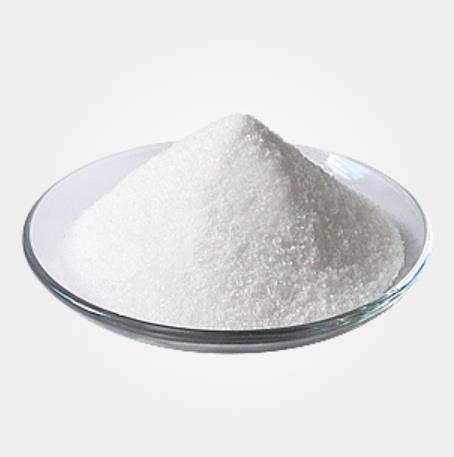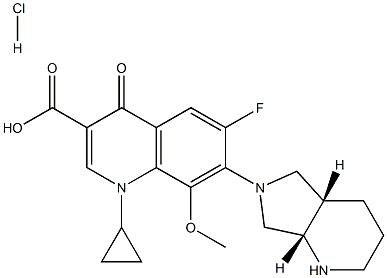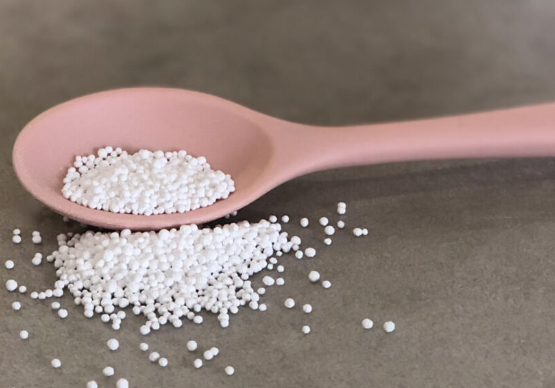Moxifloxacin Hydrochloride: A Comprehensive Overview
Introduction
Moxifloxacin hydrochloride is a broad-spectrum antibiotic belonging to the class of fluoroquinolones. Moxifloxacin hydrochloride is used to treat a variety of bacterial infections, including respiratory infections, skin infections, and infections of the eye. It works by inhibiting bacterial DNA synthesis, preventing bacteria from reproducing and spreading.
Moxifloxacin hydrochloride is particularly effective against Gram-positive and Gram-negative bacteria. It is commonly used to treat pneumonia, sinusitis, and certain types of eye infections. This antibiotic is typically administered orally or intravenously and is often prescribed when other antibiotics are not effective. However, it may cause side effects such as nausea, headache, and dizziness, and it should be used with caution in patients with a history of heart conditions.
Moxifloxacin hydrochloride should be stored in a cool, dry place, away from light, to maintain its stability. As with all antibiotics, it is important to complete the full course of treatment to avoid the development of antibiotic resistance. Patients should follow the prescribed dosage and consult their healthcare provider if any adverse reactions occur.

Figure 1 Characteristics of Moxifloxacin hydrochloride
Indications and Usage
Moxifloxacin Hydrochloride is a fluoroquinolone antibiotic developed by Bayer Pharmaceuticals (Germany.) It can be used to treat community-acquired pneumonia caused by Staphylococcus aureus, bacillus, pneumococcus, mucositis Moraxella, Klebsiella pneumoniae, acute chronic bronchitis attacks, and acute sinusitis. For the treatment of adult bacterial lung infections, paranasal sinus, skin, and abdominal cavity. Also used to treat community-acquired pneumonia, chronic bronchitis, urogenital infection, and acute sinusitis.
Moxifloxacin hydrochloride of Mechanisms of Action
Its active mechanisms and in vitro antibacterial spectrums are similar to those of other fluoroquinolones, but its profile towards gram-positive and anaerobic bacteria is similar to that of trovafloxacin, better than some older drugs. Compared with other fluoroquinolones, few gram-positive bacteria are resistant to Moxifloxacin Hydrochloride, or the spread of resistance is very slow. Gram-negative and enterococci strains with cross-resistance to other fluoroquinolones have been found. It is effective at least against Staphylococcus aureus strains grlA, grlB, gyrA and gyrBcan, and 0.5-2 mg/L can inhibit Ciprofloxacin resistant Staphylococcus aureus, from large MIC to small Ciprofloxacin, Ofloxacin, Levofloxacin, Sparfloxacin, and Moxifloxacin.
Adverse Effects
Moxifloxacin hydrochloride's adverse effects are mostly mild and transient, and 3.8% of patients discontinued treatment as a result of adverse effects. The most common effects were nausea (7.2%) and diarrhea (5.7%). The incidence of dizziness was 2.8%. Healthy volunteers experienced no changes in vital signs, hematology, blood biochemistry, and ECG. Studies show that it is different from lomefloxacin and did not show any phototoxicity.
Warnings and Precautions
Moxifloxacin hydrochloride Similar to other fluoroquinolones, the bioavailability of 400 mg of Moxifloxacin Hydrochloride declined significantly after combination with antacids. AUC and Cmax decreased by 45% and 40% compared with when used alone, but Moxifloxacin Hydrochloride absorption was not significantly affected when taken 2 hours before or 4 hours after taking antacids. When taken with iron, absorption decreased significantly, with AUC and Cmax 39% and 59% lower, respectively. No interaction with theophylline, probenecid, ranitidine, or warfarin.
Adverse reactions
Moxifloxacin hydrochloride The Side effects of this product are mostly mild and transient, 3.8% of the patients discontinued treatment due to adverse events. The most common adverse reactions are nausea (7.2%) and diarrhea (5.7%). Dizziness is 2.8%. In healthy volunteers, no changes in vital signs, hematology, blood biochemistry, and electrocardiogram.
Studies have shown that the product is different from lomefloxacin, with no drug-induced light toxicity.
Precautions
Moxifloxacin hydrochloride Similar to other fluoroquinolones, the product (400mg) in combination with antacids, bioavailability will fall significantly, AUC and Cmax fall 45% and 40% respectively when compared with alone, but using the moxifloxacin hydrochloride 2h before taking antacids or using antacids 4h after using this service, the absorption of the drug has no effect. If the product is in combination with iron, the absorption rate decreases, and and AUC and Cmax are reduced by 39% and 59%. The product has no interaction with theophylline, probenecid, ranitidine, and warfarin.
![Article illustration]() Reference
Reference
[1] Al Omari M M H, Jaafari D S, Al-Sou’od K A, et al. Moxifloxacin hydrochloride[J]. Profiles of drug substances, excipients and related methodology, 2014, 39: 299-431.
[2] Miller D. Review of moxifloxacin hydrochloride ophthalmic solution in the treatment of bacterial eye infections[J]. Clinical Ophthalmology, 2008, 2(1): 77-91.
References:
[1] Moxifloxacin Hydrochloride[J]. Definitions, 2020, 14 1: 565-568. DOI:10.32388/lm3b4c.[2] MILLER D. Review of moxifloxacin hydrochloride ophthalmic solution in the treatment of bacterial eye infections.[J]. Clinical ophthalmology, 2008, 2 1. DOI:10.2147/opth.s1666.
You may like
See also
Lastest Price from Moxifloxacin hydrochloride manufacturers

US $5.00-0.50/KG2025-05-30
- CAS:
- 186826-86-8
- Min. Order:
- 1KG
- Purity:
- 99% hplc
- Supply Ability:
- 500TONS

US $0.00/Kg/Bag2025-04-21
- CAS:
- 186826-86-8
- Min. Order:
- 1KG
- Purity:
- 98.0%~102.0%; EP9.0
- Supply Ability:
- 2500kg/month


